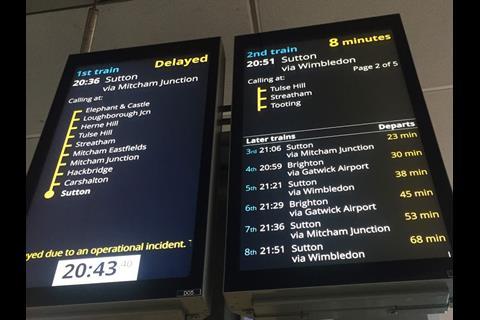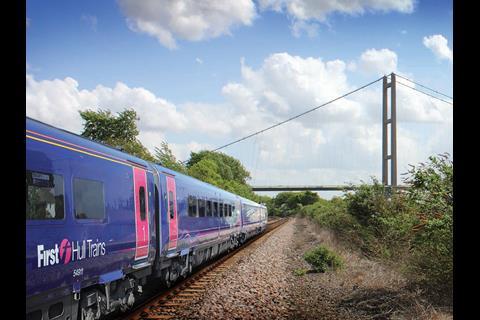The parliamentary Transport Select Committee issued its formal report on December 4 examining the widespread disruption experienced across the network after the May 2018 timetable change. The committee makes a series of recommendations, including the ‘immediate priority’ of establishing national oversight for upcoming timetable changes with independent oversight of the timetabling process; ensuring effective contingency plans for disabled passengers; and providing compensation for season tickets holders on the worst affected routes. The committee also says that there is an ‘overwhelming case’ for automated delay compensation to be introduced across the network.
On December 4, the Department for Transport confirmed that Govia would retain the Thameslink Southern Great Northern franchise until September 2021, ending speculation that the contract could be ended early in the wake of the disruption caused by the May 2018 timetable change. ‘A termination of the franchise would cause further and undue disruption for passengers and is not an appropriate course of action’, DfT said in a statement. However, Govia’s profits from the franchise are to be capped, and DfT has instructed it to make a further £15m of investment in enhancements for passengers.
On December 3, the Office of Rail & Road announced that it would be introducing changes to its regulatory process ‘to ensure that open access operators are able to prosper and grow their businesses, so long as they generate sustainable benefits for passengers’. From April 2019, ‘new open access operators (and existing operators that substantially modify their services) will be required to make a bigger contribution to the cost of running the railway through the infrastructure cost charge’, ORR said. ORR is also to introduce an Economic Equilibrium test, which it will use to assess track access applications. This test is intended to reflect the provisions of EU directives on market liberalisation and to complement ORR’s existing processes for assessing the benefits of open access applications.
Network Rail has awarded its first framework contracts for Control Period 6 (2019-24), worth a combined £645m. Story Contracting has won Lot 2 covering renewals and enhancements work in Scotland valued at around £135m, while AmcoGiffen has secured Lot 3 to deliver work on the London North East route valued at around £190m. The framework contracts cover a range of work including replacing and refurbishing structures and delivering improvements at stations.
Telent has been awarded a £7·6m contract to renew life-expired telecoms at HS1 Ltd’s London St Pancras International, Stratford International, Ashford and Ebbsfleet stations, with support from Fourway Communications Ltd. This will include the complete renewal of the CCTV, customer information systems, public address systems, help points and emergency access controls.
Network Rail has issued a Prior Information Notice asking suppliers to evaluate options for converting eight Sleeper Carrier Wagons into barrier vehicles which would also feature modular staff welfare facilities. These modular welfare units, which would feature male and female toilets and basic kitchen facilities, would be used interchangeably with NR’s existing storeroom containers.
ScotRail is seeking local and national retail partners to improve the range and quality of food, drink and community offerings at stations. More than 20 stations across Scotland are being made available to host new ventures, with many offering attractive town centre locations. The opportunities range from vacant station buildings and existing retail outlets to stand-alone kiosks.






